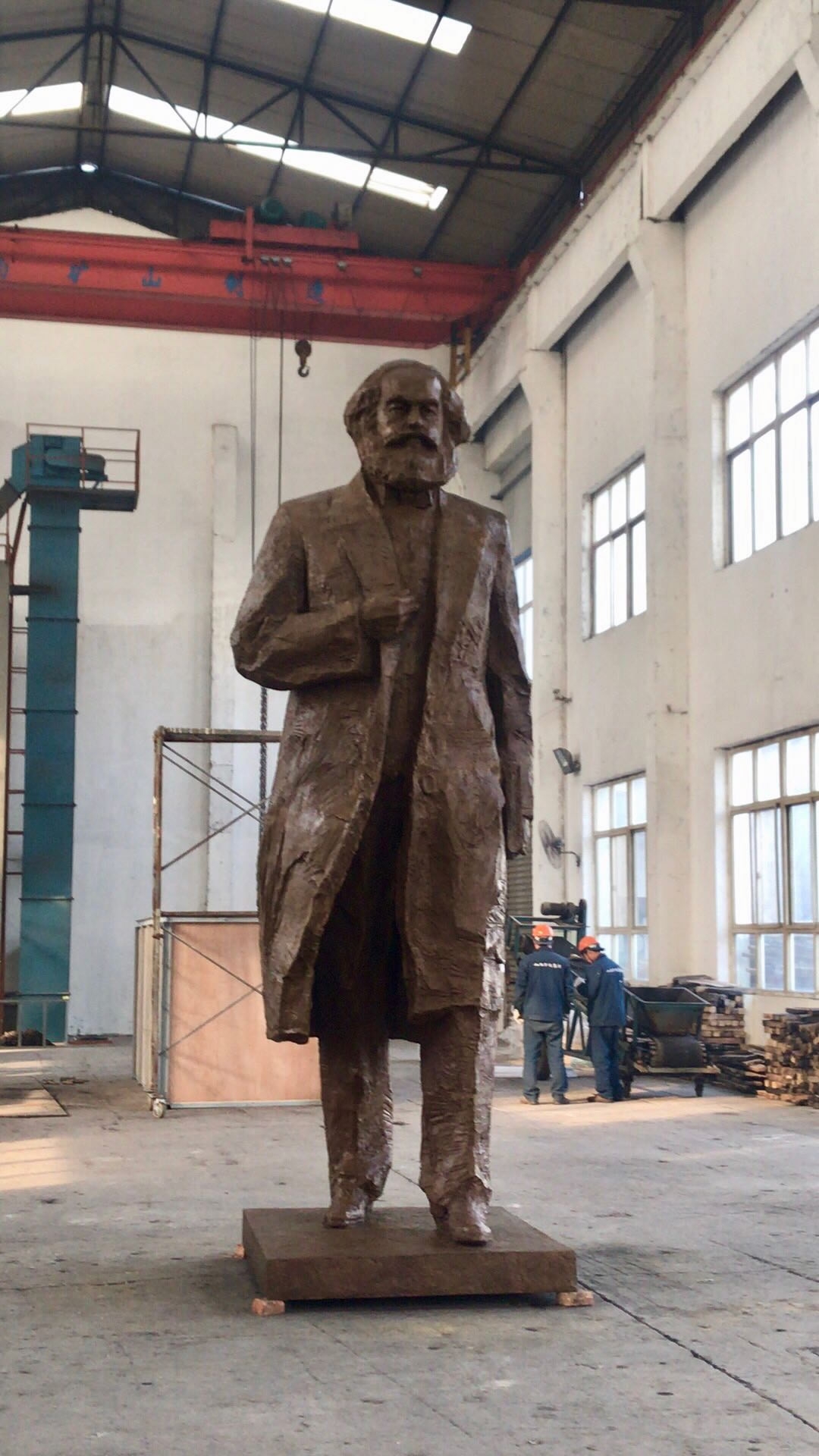
Culture
15:09, 04-May-2018
Karl Marx statue: China's gift to Germany for Marx's 200th birthday
By Wang Mengzhen
02:48

The German town of Trier, also known as Karl Marx's hometown, has received a special gift from China – a huge bronze statue of Marx. Created by famous Chinese sculptor Wu Weishan, the statue will be officially unveiled on May 5.
Along with its base, the total sculpture is 5.5 meters tall, matching Karl Marx’s birthday on May 5.

The 5.5-meter-tall bronze statue of Karl Marx stands in a bronze factory workshop in China's north Shanxi Province on February 24, 2018, ready to be transported to the German philosopher's hometown. /CGTN Photo
The 5.5-meter-tall bronze statue of Karl Marx stands in a bronze factory workshop in China's north Shanxi Province on February 24, 2018, ready to be transported to the German philosopher's hometown. /CGTN Photo
The person behind the masterpiece is Chinese sculptor Wu Weishan, who's also a curator in the National Art Museum of China. Wu spent the last two years creating this artwork.
For him, inspiration hit as soon as he stepped into Trier.
"As a child, I started to know Karl Marx through his portrait hanging on the wall of my home. I studied Marxist philosophy from high school to college. So, I have a very clear image of him since childhood. After arriving in Germany and seeing ancient Roman architecture during his time, I was immediately inspired. His thoughts are still present in our lives. I would like to imagine him still walking on the streets of his hometown and talking with people all around the world two hundred years later,” said Wu.

Chinese Sculptor Wu Weishan, who created the bronze statue of Karl Marx, is seeing the statue off at the Beijing Capital International Airport, February 28, 2018. /CGTN Photo
Chinese Sculptor Wu Weishan, who created the bronze statue of Karl Marx, is seeing the statue off at the Beijing Capital International Airport, February 28, 2018. /CGTN Photo
Four years ago, Wu had created another work depicting Marx together with fellow philosopher Friedrich Engels. It's currently standing in the Central Compilation and Translation Bureau in Beijing.
Through his work, Wu aims to interpret how Marx and his philosophy links the East with the West. Meanwhile, Wu has always been committed to promoting Chinese art on the world stage. Apart from the Karl Marx Statue, his masterpiece of “Confucius” and “Asking Way,” can be found in various countries.
"Times have changed. My work has gained much of the world's attention because China is standing at the center of the global stage. As such, I have created a walking Karl Marx, which is coordinated with his theory that matter is evolving and eternal. As a Chinese artist, I would like to express my understanding of Marx, as well as to present the integration of Chinese and Western cultures,” Mr. Wu added.

Wu Weishan in his office at the National Art Museum of China on April 27, 2018. /VCG Photo
Wu Weishan in his office at the National Art Museum of China on April 27, 2018. /VCG Photo
In this 21st century, China is making more practical efforts to adapt Marxism into the Chinese context. The impact of Karl Marx and his philosophies continue to be felt in many aspects of Chinese society – from politics to visual arts and education.
"This is something that can be accepted by people all over the world. In this way, aesthetic items like statues, pictures or songs are all reflections of common memories. There are no ideological boundaries... even though they grew up in different cultures. This is something very interesting because we share something in common,” said Yu Wenli, the deputy dean at School of Marxism, Peking University.

SITEMAP
Copyright © 2018 CGTN. Beijing ICP prepared NO.16065310-3
Copyright © 2018 CGTN. Beijing ICP prepared NO.16065310-3